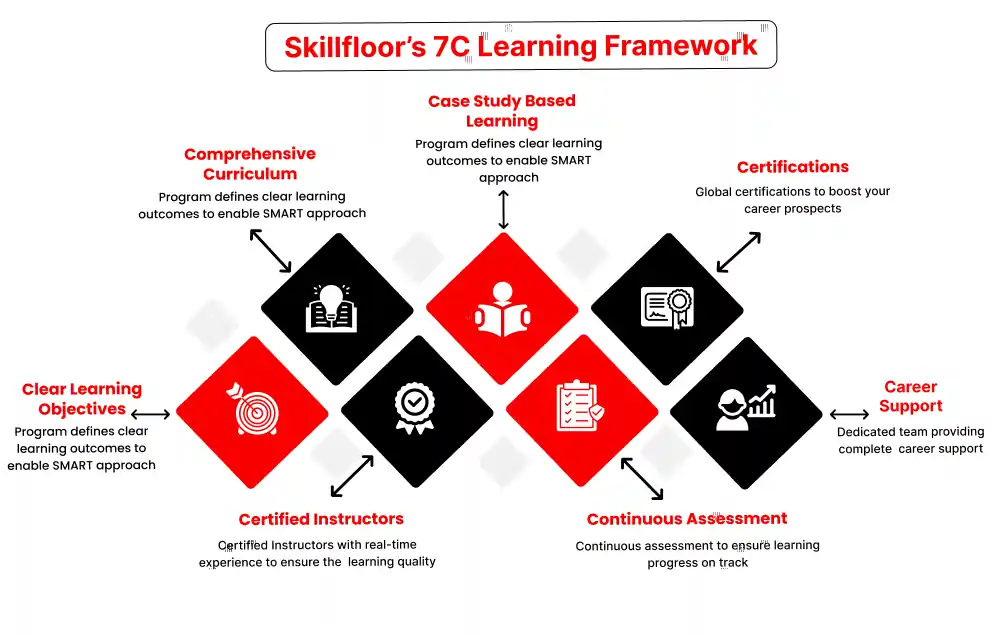Boston is a leading educational hub and a hotspot for cybersecurity. As companies continue to digitize their operations, cybercriminals become increasingly innovative, and governments increase their surveillance, cybersecurity professionals are in-demand and command high salaries. With that in mind, Boston cybersecurity courses are a great investment for your career. Boston's status as a prominent cybersecurity education center stems from its forward-thinking institutions, advanced technology, and numerous partnerships. The city's technology scene is bolstered by leading academic institutions such as Harvard, MIT, Northeastern, and Boston University, all of which have cybersecurity courses. For instance, Northeastern University offers a Master of Science in Cybersecurity that is ideal for individuals aiming for leadership positions in cybersecurity. Northeastern's curriculum is comprehensive, covering topics such as cryptography, network security, and risk management, among others. The course also features experiential learning, an essential aspect as it provides hands-on experience critical for staying up-to-date with the rapidly evolving cybersecurity space. Boston University's Metropolitan College also offers a range of cybersecurity courses, including an online Master of Science in Cybersecurity. The course covers cybersecurity tools and concepts such as risk management, digital forensics, and network security, among others. Students in this course also have the opportunity to participate in real-world cybersecurity projects, helping them to develop critical cybersecurity skills. Harvard also offers a range of cybersecurity courses, ranging from data science for cybersecurity, cybersecurity risk management, cybersecurity policy and governance, to privacy and cybersecurity, among others. Harvard's courses provide a unique perspective on cybersecurity, focusing on the social, legal, and ethical aspects of cybersecurity, which are often complex and critical in dealing with cyber threats. MIT is also renowned for its cybersecurity programs, such as the Interdisciplinary Consortium for Improving Critical Infrastructure Cybersecurity (IC)³ which educates individuals on the cybersecurity concerns for the United States' critical infrastructure. MIT also offers several computer science courses that cover security-related topics such as web security and software security. Apart from those leading institutions, cybersecurity courses are also offered by numerous cybersecurity startups and consulting firms. For example, Cybrary, a cybersecurity training platform, offers online courses that cater to all individuals, regardless of experience or education level. Security Innovation, a cybersecurity consulting firm, provides training and certification programs covering a wide range of cybersecurity domains. In conclusion, Boston has established itself as a prime cybersecurity education hub with various cybersecurity courses offered by leading institutions and startups. Pursuing cybersecurity courses in Boston will provide students with an advantage, as they will have access to cutting-edge technology, innovative academic programs, experienced professionals, and networking opportunities. With the constant evolution of cybersecurity threats, it's essential to invest in yourself by pursuing cybersecurity courses to ensure you are equipped to protect yourself against cyber threats.

₹60,000




Hurry Up!
Limited seats call us now for amazing discounts on digital maketing course



Skillfloor is officially recognized by the Government of India as a Startup India (DPIIT) certified institute — a mark of trust in the quality of our courses and career-focused learning.
We offer hands-on programs across multiple fields, designed by industry experts to help you gain skills that employers value:
Digital Marketing – Grow businesses online with SEO, social media, and analytics.
AI & Machine Learning – Build practical AI skills for real-world applications.
Ethical Hacking & Cybersecurity – Protect networks and systems from cyber threats.
Data Analytics & Data Science – Analyze data and make smarter decisions.
Other Emerging Technologies – Learn trending, in-demand skills.
At Skillfloor, you don’t just learn — you practice, complete live projects, and prepare for real career opportunities. Whether you’re a student, graduate, or working professional, we help you upgrade your skills and grow confidently in your career.
Join a government-recognized institute shaping India’s next generation of skilled professionals.



- Overview of Cyber Security Concepts
- Types of Cyber Threats (Malware, Ransomware, Phishing, etc.)
- Cybersecurity Frameworks and Standards (NIST, ISO 27001)
- The Role of Cyber Security in Organizations
- Key Cyber Security Terminology (Vulnerabilities, Risks, Threats)
- Understanding Networking Basics (IP, DNS, TCP/IP)
- Network Security Devices: Firewalls, Routers, and Switches
- Intrusion Detection Systems (IDS) and Intrusion Prevention Systems (IPS)
- Secure Network Design and Segmentation
- Virtual Private Networks (VPNs) and Secure Communication Protocols
- Confidentiality, Integrity, and Availability (CIA Triad)
- Risk Management Processes (Assessment, Mitigation, Response)
- Types of Security Controls (Preventive, Detective, Corrective)
- Security Policies and Standards (ISO, NIST)
- Security Audits and Compliance Requirements (SOX, GDPR)
- Basics of Cryptography: Symmetric vs Asymmetric Encryption
- Public Key Infrastructure (PKI) and Digital Certificates
- Common Cryptographic Algorithms (AES, RSA, ECC)
- Digital Signatures and Certificates
- Hashing Algorithms and Their Applications (SHA, MD5)
- Common Web Application Vulnerabilities (SQL Injection, XSS)
- OWASP Top 10: Key Vulnerabilities and Mitigation
- Secure Software Development Lifecycle (SSDLC)
- Web Application Firewalls (WAF) and Their Role
- Authentication and Session Management Best Practices
- Phases of Penetration Testing: Reconnaissance, Scanning, Exploitation
- Vulnerability Scanning and Risk Assessment
- Tools for Ethical Hacking: Nmap, Metasploit, Burp Suite
- Social Engineering Attacks and Mitigation
- Writing Penetration Testing Reports and Documentation
- Incident Response Lifecycle: Identification, Containment, Eradication
- Incident Response Plans and Team Structure
- Forensic Analysis of Cyber Incidents
- Collecting and Preserving Digital Evidence
- Using SIEM (Security Information and Event Management) for Monitoring
- Understanding Cloud Computing Models (IaaS, PaaS, SaaS)
- Security Challenges in the Cloud: Data Breaches, Misconfigurations
- Shared Responsibility Model in Cloud Security
- Cloud Security Best Practices (Encryption, Access Control)
- Securing Cloud Platforms: AWS, Microsoft Azure, Google Cloud
- Authentication Mechanisms: Passwords, Biometric, 2FA, MFA
- Role-Based Access Control (RBAC) vs. Attribute-Based Access Control (ABAC)
- Single Sign-On (SSO) and Federation
- Privileged Access Management (PAM)
- Identity and Access Management Solutions (Okta, Azure AD)
- Overview of Data Protection Laws (GDPR, HIPAA, PCI-DSS)
- Cybersecurity Compliance Frameworks (NIST, CIS Controls)
- Data Privacy Regulations and Their Implications
- Legal Requirements for Incident Reporting and Data Breach Notifications
- Understanding Cyber Liability Insurance and Legal Risks